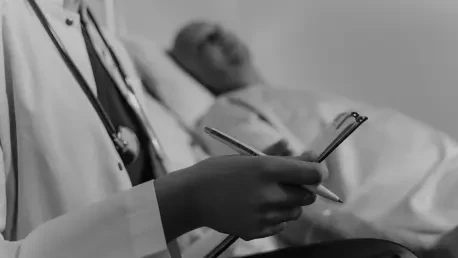Can a newly discovered genetic syndrome completely reshape how cancer is treated? The emergence of DIAL syndrome, which impairs DNA repair mechanisms and elevates cancer risk, presents that possibility, stirring curiosity among researchers and medical professionals. The revelation raises an intriguing challenge: could understanding this rare condition lead to breakthroughs benefiting a broader spectrum of patients battling cancer?
The significance of DIAL syndrome transcends its rarity as a genetic anomaly. Affecting the DIAP# gene, this syndrome disrupts the body’s ability to repair DNA, a function critical in preventing cancer development. With DNA repair deficiencies known to activate cancerous processes, this discovery could pave the way for pioneering treatment strategies. This understanding is crucial as the world shifts toward personalized medicine, aiming to tailor treatments to individual genetic profiles. Such precision becomes particularly poignant in cancer care, where generic approaches often fall short.
A Genetic Mystery Comes to Light
Peeling back the layers of DIAL syndrome reveals its origins in mutations of the DIAP# gene. These mutations compromise the production of a protein essential for DNA repair, thereby increasing chromosome breakage. This mechanism amplifies cancer risks, particularly for blood-related cancers like B-cell lymphoma. The syndrome shares its characteristics with other chromosome breakage disorders, emphasizing its relevance in genetic research.
Much like other chromosome breakage disorders, early detection of DIAL syndrome is critical. Symptoms often manifest in childhood, necessitating prompt diagnosis to manage potential cancer risks effectively. Researchers advocate for incorporating DIAL syndrome into genetic screening panels. This step not only promises to enhance early diagnosis but also helps develop personalized plans tailored to a patient’s unique genetic disposition.
Expert Contributions and Long-Term Research
Insights from leading experts like Professor Grant Stewart highlight the delicate nature of treating patients with DNA repair deficiencies. Over the years, collaborative research efforts have gradually unveiled the complexities of DIAL syndrome. The discovery journey, marked by partnerships with institutions like University College London, underscores a dedicated pursuit of understanding. The identification of DIAL syndrome, involving the analysis of patients with similar gene mutations, culminated in its recognition as a new genetic disorder.
A memorable case contributing to this discovery involved a patient who began their journey almost two decades ago. This individual’s experience played a pivotal role in illuminating the DIAP# mutations responsible for the syndrome. Through collaboration and advanced genetic diagnostics, scientists identified numerous other patients, confirming the syndrome’s existence and characteristics.
Toward Tailored Cancer Treatments
Moving forward, integrating DIAL syndrome information into common genetic sequencing processes represents a strategic leap in personalizing cancer treatments. By identifying patients carrying these mutations, healthcare providers can create adaptable treatment plans that mitigate severe side effects. This proactive approach aims to bridge the gap between standard therapies and the unique needs of those with DNA repair-deficient conditions, enhancing both efficacy and safety.
The insights gleaned from DIAL syndrome research underscore a broader lesson in oncology: understanding genetic underpinnings offers a blueprint for innovative frameworks in cancer care. This paradigm shift aligns with the trajectory of modern medicine, which seeks to personalize treatments based on nuanced genetic data. As the medical community broadens its view, experiences like those stemming from DIAL syndrome could redefine protocols that reach far beyond any single condition.
Introspection on DIAL syndrome’s implications reveals a future laden with opportunity. As personalized medicine continues to rise, the importance of early genetic identification and bespoke treatment strategies becomes clear. The past study of DIAL syndrome demonstrated that while the condition is rare, its lessons extend universally, potentially shaping the future of medical approaches dealing with genetic variability and cancer.









